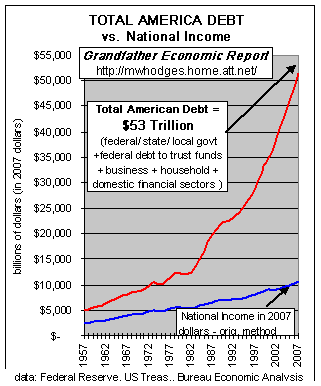A Recession of Biblical Proportions
Consumers usually build savings in booms, then raid their troves during busts – but not this time.
In booms we put away some of the abundance because we know we’ll need it in busts to come. Then, when the bad times hit, we spend some of what we’ve saved. But no more: Our recent bizarre behavior helps explain how we got into this economic mess.
For the first time since Genesis, consumers are doing everything backward. During the expansion from 2002 through 2007, our savings rate fell rather than rose. In mid-2005 it even went negative, and it mostly stayed below 1% until late last year. Then, as the recession really took hold, we again did the opposite: We increased our saving. As the economy shrinks, our savings rate has climbed to almost 3%.
Not only do we lack savings to dig into and spend during this downturn, but we’re also spending a smaller proportion of our incomes (which are themselves stagnating, so maybe it’s a triple whammy). Put it all together, and it’s clear why this recession is dragging on.
The central mystery: Why did we go into hock in the fat years? One argument is that we were behaving rationally. As our homes increased in value, they were doing our saving for us, so we didn’t have to save out of current income.
Nor was our borrowing binge focused only on mortgages; we were going heavily into most other types of debt as well. In fact, we were spending record proportions of our incomes just to service our personal debt – even with interest rates near historical lows.
Maybe it was just a mania, focused not on tulip bulbs but on the simple joy of buying, reinforced by a belief that bad times were no longer inevitable.
Whatever happens, don’t expect miracles. Spending and saving behavior evolves slowly, and our current mess is in some ways the culmination of a long journey. We may not suddenly start behaving with biblical wisdom. But at least let’s try not to forget how bad things can be when we get spending and saving backward.
Normal vs. Abnormal
It’s normal human behavior to want more than we have. Our free enterprise system rewards hard workers by allowing them to live well. What was not normal over the past decade were the ridiculous lending policies of the banks, encouraged and supported by the easy monetary policies of the Federal Reserve.
In fact, not much of anything was normal over the past ten years. It’s not normal to lend borrowers large amounts of money without regard to income or credit. It’s not normal to expect housing prices to rise 100% every five years. It’s not normal to expect that a nation could borrow its way to prosperity. The list goes on.
The really bad news here is that while consumers know what they have to do (save more, spend less) every action being taken by the Government and Federal Reserve is to continue the failed policies of the past, this time on an even grander scale. Let’s all hope that the common sense of the governed will ultimately elect leaders who stop promising free lunches with borrowed money.
Courtesy: mwhodges.home.att.net/
